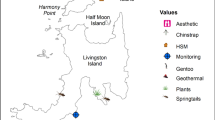Abstract
India is known for the moral ethos of its people. Indian beliefs have been associated with compassion and respect for nature and its creations since ages. The religious beliefs of Jain, Vedic and Buddhist traditions in India established the principles of ecological harmony centuries ago. Indian religious and philosophical traditions embody the earliest concept of environmental ethics. Some of the important traditional environmental beliefs prevalent in India in which nature has been valued are discussed here. In Rajasthan, a desert state of India, the Khejri tree is valued for its moisture-retaining properties, and it is not axed even if it comes between the constructions. The live example of this is cited in Salasar Balaji temple in Sikar district. A Bishnoi cult of India inhabiting the Jodhpur region is known for wildlife protection specially the famous Black Buck that is an endangered species. Some areas popularly known as sacred groves or orans that are dedicated to a local deity worshipped by the inhabitants of that area are especially reserved for biodiversity conservation, and anthropogenic activities are completely prohibited. These and many more similar examples show that traditional beliefs of Indian societies have got a deeper understanding of the ecological system and have been completely integrated with nature to evolve sustainable lifestyle.
Similar content being viewed by others
References
Anthwal A, Sharma RC, Sharma A (2006) Sacred groves: traditional way of conserving plant diversity in Garhwal Himalaya, Uttaranchal. J Am Sci 2(2):35–38
Folke C, Berkes F, Colding J (1997) Ecological practices and social mechanisms for building resilience and sustainability. In: Berkes F, Folke C (eds) Linking social and ecological systems: management practices and social mechanisms for building resilience. Cambridge University Press, Cambridge
Gadgil M, Berkes F (1991) Traditional resource management systems. Resour Manage Optim 8:127–141
Holling CS, Berkes F, Folke C (1997) Science, sustainability, and resource management. In: Berkes F, Folke C (eds) Linking social and ecological systems: management practices and social mechanisms for building resilience. Cambridge University Press, Cambridge
Author information
Authors and Affiliations
Corresponding author
Rights and permissions
About this article
Cite this article
Kala, M., Sharma, A. Traditional Indian beliefs: a key toward sustainable living. Environmentalist 30, 85–89 (2010). https://doi.org/10.1007/s10669-009-9247-z
Published:
Issue Date:
DOI: https://doi.org/10.1007/s10669-009-9247-z




